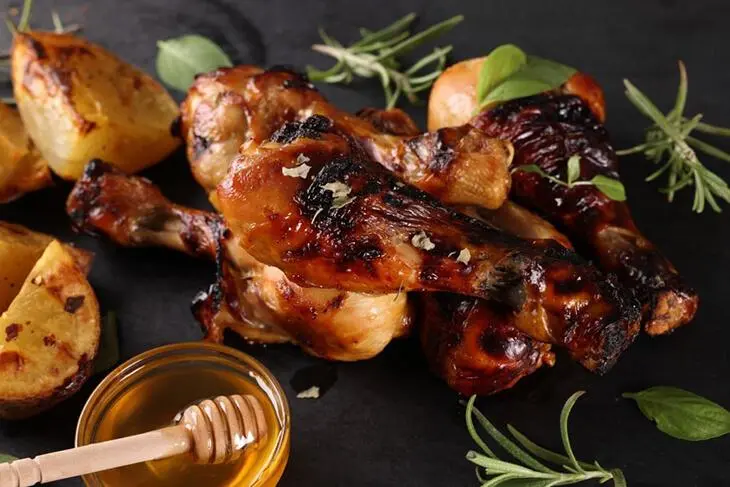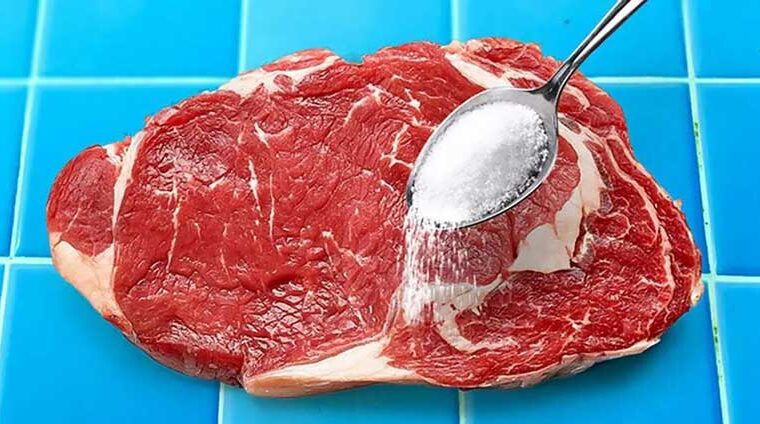It is important to go to the butcher, a professional who knows his business well. Because, in fact, the tenderness of the meat will also depend on the choice of cut, the date of slaughter, the packaging and the quality of the supply. Forget the eternal “it’s the butcher’s fault, he served me the leftovers!” “.
You need to be more specific when making your request: “beef for stew, pork for the oven, chops for the pan…”. These details are important for the professional, who will also give you valuable advice and that bouquet of aromatic plants that is on your work surface.
How to get tender and tender meat?
By rolling your piece of meat in coarse salt, a few tablespoons of baking soda or honey, you will give these ingredients time to act on the fibers of the meat. Then it will be softer after rinsing.
It is also very possible to cook crusted meat with the same ingredients. The beginning ?
Steam cooking that will tenderize even the toughest meats. Baking soda, salt and honey in abundance will give your legs, the meaty parts of the meat, beautiful golden crusts after going through the oven, which everyone loves, except this chick, who wants to be tougher than meat. ! Of course, be careful with the cooking time.
Can marinade tenderize all tough meats?
This is a method that could be described as a grandmother’s advice, which would make star chefs scold! And yet, that’s what it’s all about: since the beginning of time, women have found practical advice to satisfy the whole family, and often with the means at hand.
They lived everything and today we benefit from these discoveries, which have become traditions. Marinade is one of them. To tenderize tough meat, you must hydrate it and allow its fibers to relax. Therefore it contains acidic and softening elements. The question that arises in this case is the duration of the maceration.
The answer is ultimately relative and depends on many criteria, particularly the type of meat and the marinade. 3 to 6 hours and the case could be heard! It’s your turn to experiment and make your own contribution.

Prepare a homemade marinade – Source: spm
Thanks to the acidity… lemon, vinegar:
El elemento ácido se destaca aquí. Por supuesto, no vas a buscar productos químicos, aunque, en la cocina molecular… Se necesitan elementos que contengan ácidos no abrasivos y más suaves, que sin embargo sean capaces de penetrar las fibras musculares y relajarlas.
El limón, el vino tinto o el vinagre de sidra serán suficientes. ¡Ten en cuenta que el tomate, la piña o la papaya son excelentes ablandadores de carne!
Gracias a los fermentos lácticos: leche, nata, lácteos.
Leer más en la página siguiente

